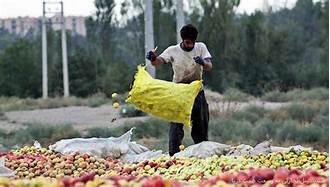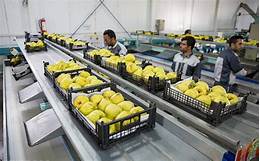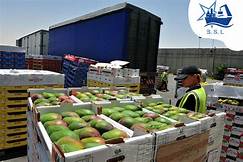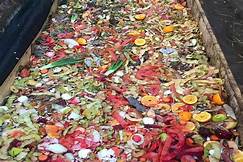Buy Food and agricultural waste In qarchak Industrial City
You can introduce your business services or products in this section.
For this purpose, be in touch with us.
The process of collection, transport, disposal, recycling and monitoring of agricultural waste is called food and agricultural waste management is undertaken to recycle the food and agricultural waste so as to reduce the ill effects of wastes on environment, health and aesthetics. Various techniques are used for the management of waste which includes land-filling, incineration, anaerobic digestion, pyrolysis, plasma gasification, recycling, composting. Anaerobic digestion produces bio fuel in the form of biogas. Plasma gasification results in the generation of electricity from waste. Recycling of food and agricultural waste involves the collection, sorting and reprocessing of waste into new products. Vermin composting is the preferred form of composting as it results in the formation of vermin compost called black gold due to the presence of rich nutrients and growth promoting factors in it.
Food and agricultural waste of different consistencies requires different management techniques and handling equipment. Food and agricultural waste may be in the form of liquid, slurry, semisolid, or solid, waste, such as manure can change consistency throughout the system, all the year. The total solid concentration of manure is the main characteristic that indicates how the material can be handled.
The process of collection, transport, disposal, recycling and monitoring of food and agricultural wastes is called food and agricultural waste management. Food and agricultural waste management can be costly so it is important to understand the various effective, sustainable and safe means of its management. The three points ‘R s “Reduce, Reuse, and Recycle have become basic tenet in food and agricultural waste management due increase in generation of wastes, increasing in processing costs and decrease in available landfill space. There should be flexibility in food and agricultural waste management systems in light of changing environmental, social and economic conditions. To optimize, evaluate, adapt and define food and agricultural waste management systems, the information and feedback can be obtained from system analysis.
Presently, world population are increasing day by day which creating a huge amount of food and agricultural waste which ends up in landfills, also can be re-purposed. The United Kingdom was the first country to introduce the law for food and agricultural waste management in due to health and hygienic issues in the civil society and cities areas. After this, the concept of dust-bin has became essential part of our life.
The reduction of food and agricultural wastes is placed at the top of waste management hierarchies because the best means waste management is to reduce waste by not creating it in first place. The reduction of food and agricultural waste can also be achieved through the reuse of products. The reduction and reuse of wastes save natural resources, reduces generation of wastes and reduces the cost associated with food and agricultural waste disposal.




